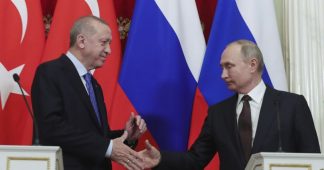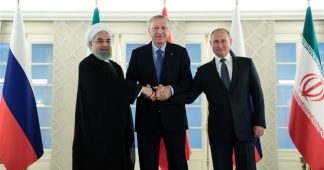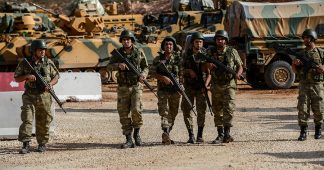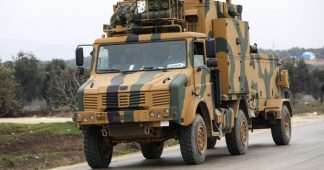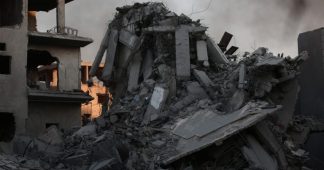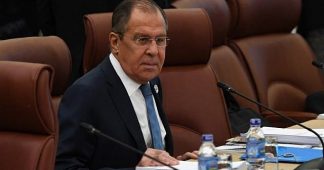By Masoud Sadrmohammadi
March 9, 2020
Less than 24 hours after implementing the Russian-Turkish ceasefire agreement in Aleppo, while Iranian officials have not stated any reaction to the deal, it has been significantly considered by Persian media. Initial assessment on how the media have covered the issue suggests that Iran pessimistically looks at the continuity of ceasefire. While some media evaluated the agreement as a positive and successful step for Erdogan, the others have denied any advantage for Turkey, and considered the agreement as a sign of operational failure for Ankara.
The conservative Tasnimnews measured the ceasefire unstable in an articlethat published on Friday morning. The article also stipulates that “Erdogan is fragile in domestic politics” and continues: “without a considerable achievement, he has satisfied to the agreement”. The piece also emphasizes that “according to the agreement, the Syrian forces will not retreat”, which means Erdogan has withdrawn his remarks on February 15ththat “Syrian forces in Idlib must pull back behind a line of Turkish observation posts”.
Farsnews, the other major news agency of the country which is affiliated to IRGC, just covered the towns and villages released by Syrian army in recent weeks, and ignored publishing any analysis on the ceasefire agreement.
The popular Khabaronline, who just a day before the agreement severely criticized Turkey on calling the U.S and NATO for military intervention in Syria, marks the agreement an outset for the breakup of Syria. The editor titled the report “Erdogan won the heart of Putin” and implicitly analyzed the ceasefire agreement as Ankara’s retreat from previous position in Idlib.
The official government news agency (IRNA) released an interview with Hadi Borhani, a professor of International Relations in Tehran University, just derived Iran’s peaceful position toward the Idlib issue. The expert highlighted “Iran’s good understanding from critical prospects of the increased tensions“, and explained Tehran’s stances cautious and reconciliatory. He also referred to the phone conversation of President Rouhani with Recep Tayyip Erdogan, and stated: Iran is trying to resolve the crisis through dialogue and reconciliation, and therefore, the country has invited for the meeting.
Iranian Students News Agency (ISNA) also covered the ceasefire agreement by describing the achieved peace fragile and unstable.
The Tabnak news covered the issue pessimistically as other media, and mentioned: “The ceasefire agreement between Putin and Erdogan, first of all, requires maintaining the status quo. It means keeping the Syrian army in retrieved regions, where the area is over 600 square kilometers, including geo-strategic positioned city of Saraqib. It also proved that Erdogan’s deadline for pulling back the Syrian army resulted in nothing.
The specialized analytical “Islamic World News” which is affiliated to Iranian military circles, explained the agreement as a prelude for liberating M4 and M5 routes by the Syrian army and continued: The agreement in certainly provisional and will not go on stably. Especially, since the M4 margin areas are the main foothold of ardent forces such as “Islamic Party of Turkistan”, it would not be easy for Turkey to evacuate there. Thereupon, it will provide sufficient reason for the Syrian forces to go forward Idlib and Jisr al-Shughur.
The report also argued that “at the end of next spring or early summer, Syrian forces will violate the ceasefire and start the operation of liberating Idlib, just after supplying necessary logistics and manpower”. The website also describes “violating ceasefire” as an action “that occurs by armed forces in the region quiet often”.
Preliminary evaluations show that Iranian media do not positively view toward the ceasefire agreement signed by Turkish and Russian leaders in Moscow. They almost consider the agreement as a temporary measure to maintain the current order and prevent uncontrollable crises.
Published at https://uwidata.com/8555-iranian-media-describe-moscow-agreement-fragile-and-temporary/
